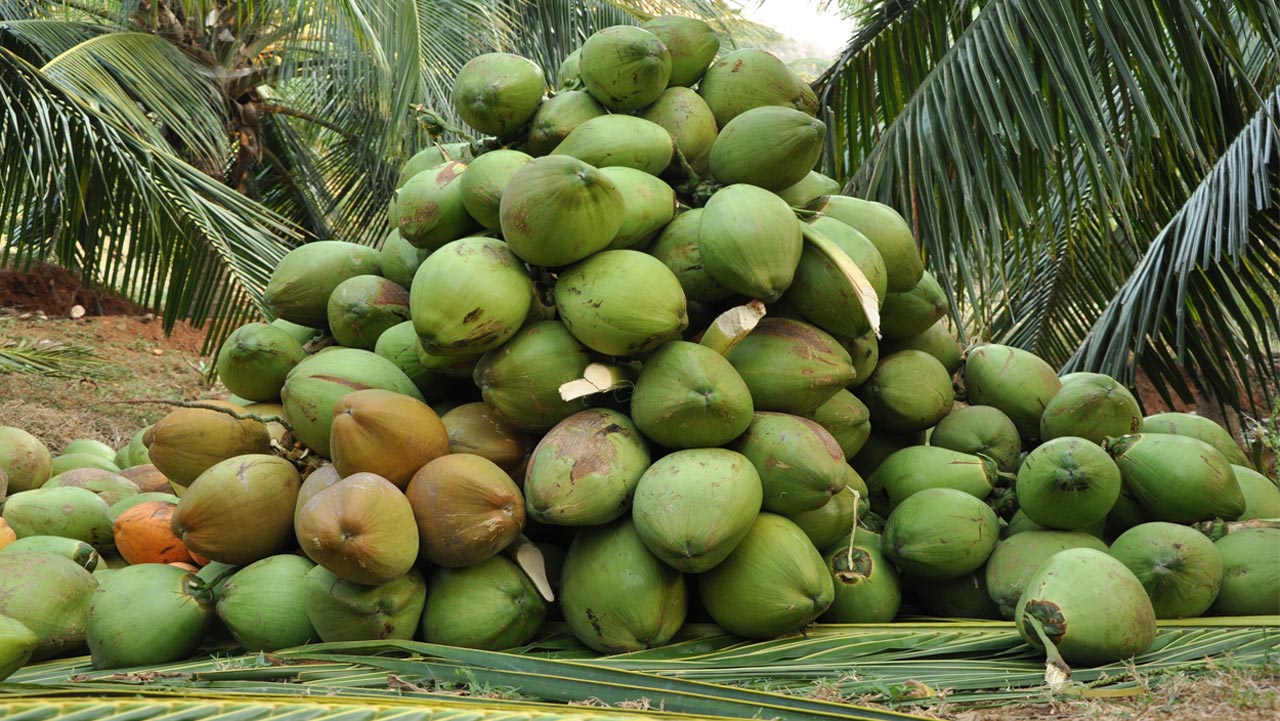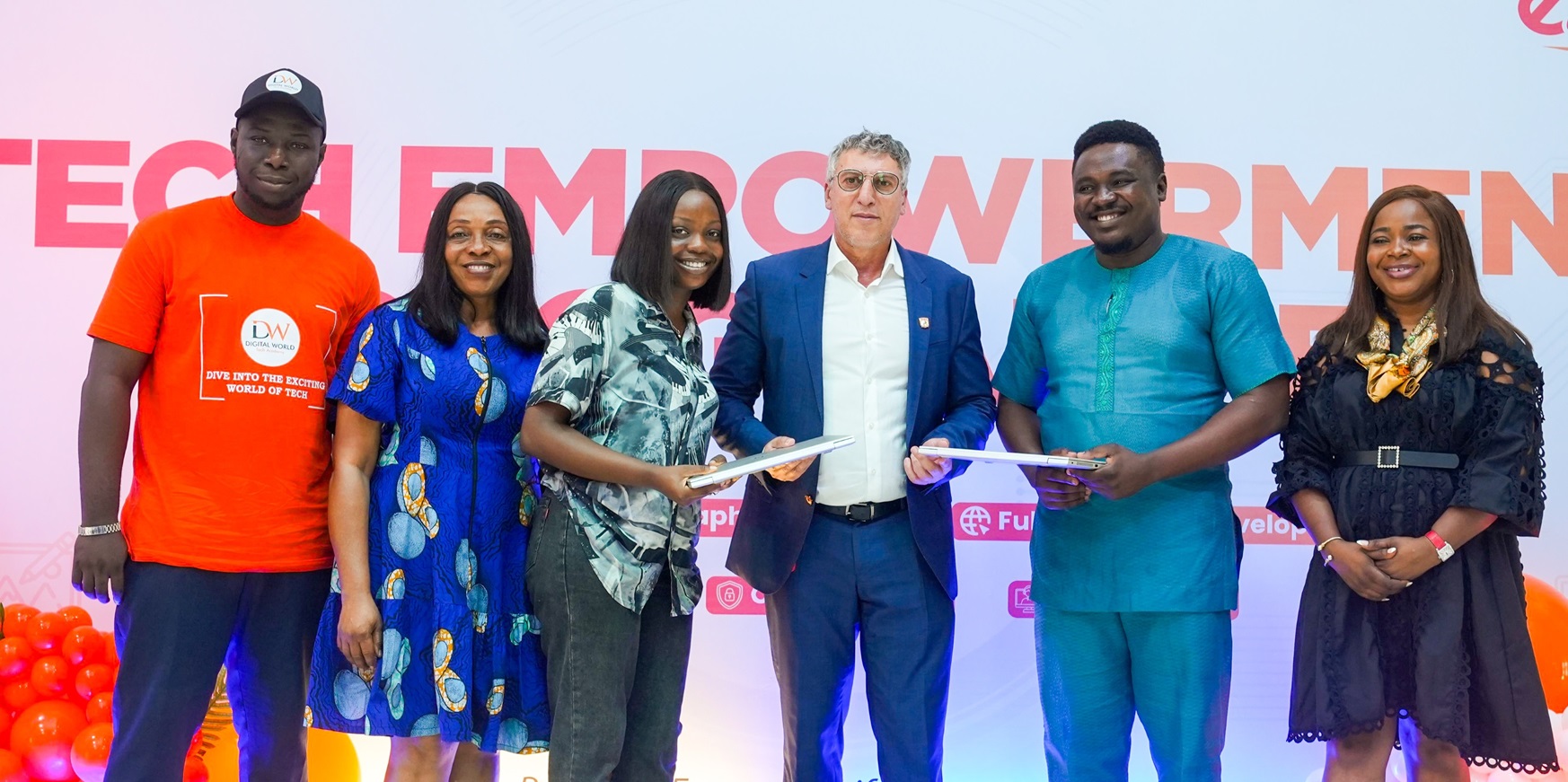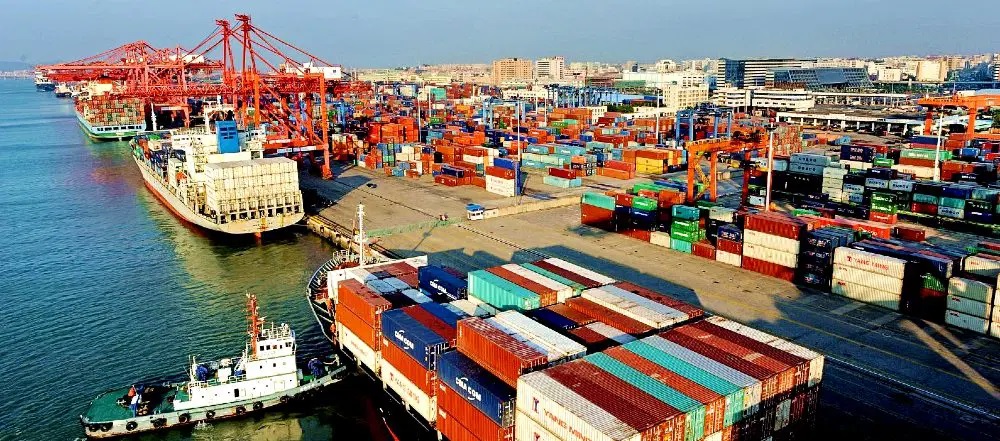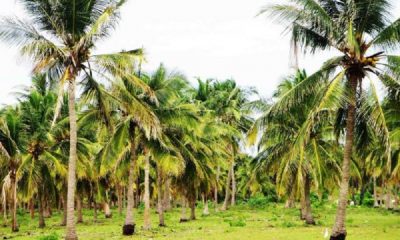General
Nigeria Produces 350,000 tonnes of Coconut Annually—Olusanya

By Modupe Gbadeyanka
The acting Commissioner for Agriculture in Lagos State, Ms Abisola Olusanya, has said more than 350,000 tonnes of coconut are produced in Nigeria annually.
The Commissioner made this disclosure on Wednesday at the Year 2020 Coconut Day Celebration organised by the Lagos State Coconut Development Authority at Lagos Farm Centre, Agege.
She said of this figure, which she said was still below what the likes of the Philippines, Malaysia and other Asian countries produce yearly, the contribution of Lagos State is over 70 per cent.
“I believe Nigeria as a whole produces over 350,000 tonnes of coconut annually but it is far behind what the likes of Philippines, Malaysia and other Asian countries are producing on an annual basis,” she said.
Ms Olusanya said the state government was working with private investors to establish a coconut processing factory in Badagry very soon to further optimise the use of coconut and harness the economic potentials in the value chain.
According to her, the factory will be exclusively dedicated to the processing of coconut husk to coir and coco peat, among others, under a Public-Private Partnership arrangement in the State’s Y2021 Annual Work Plan and Budget.
“It is believed that with all these efforts, Lagos State will continue to be the number one coconut producer in Nigeria. This will, to a great extent, provide jobs and employment for teeming citizens.
The support will also lead to various job creation in other areas aside from the above mentioned and contribute to export and foreign exchange earnings for Nigeria,” she said.
While reiterating Governor Babajide Sanwo-Olu’s commitment to adopting a much more robust food security strategy for the State next year, the Commissioner said the theme of this year’s celebration Coconut in the 21st Century Economy was aimed at creating awareness for the promotion of production, processing, utilisation and commercialisation of the coconut value chain.
She said that the occasion takes into cognisance the fact that Nigeria ranks 18 among over 92 coconut producing countries of the world.
“This occasion, therefore, serves as another timely wake up to go back to the basics and rekindle the interests and values of coconut and its plethora of products for social, environmental, economic and wellness advantages as seen to be practised and enjoyed sustainably by coconut driven economies.
“Lagos has a comparative advantage for coconut production, processing, utilisation and commercialisation and as of today, remains the hub of Coconut in Nigeria and all coconuts traversing the West Coast of Africa,” she said.
Ms Olusanya noted that the implementation of many initiatives in the coconut sub-sector by the state government is to further bring awareness of the potentials of coconut that have not been fully tapped.
She congratulated all the coconut value chain actors and assured them of government’s continuous support in providing an enabling environment to unleash potentials of the wonder crop to an enviable level.
In his presentation, Dr Joshua Odewale of the Nigeria Institute for Oil Palm Research (NIFOR), Benin City, Edo State, urged the government to set up an endowment fund for coconut and coconut products, national consumption and export for about 20 years, noting that the Philippines set a 25-year endowment fund goal.
He expressed the need for government to take coconut as a personal crop, know the crop and identify the genuine stakeholders in the coconut industry as well as the secondary product needs of the industry.
General
Alison-Madueke Denies Wrong Doing as Prosecutors Present Evidence

By Adedapo Adesanya
Embattled former Nigerian Minister of Petroleum, Mrs Diezani Alison-Madueke, returned to court in London on Monday, denying wrongdoing as prosecutors presented evidence for an alleged bribery.
It was recently reported that Mrs Alison-Madueke, once president of the Organisation of the Petroleum Exporting Countries (OPEC), received cash and luxury benefits in exchange for influence over oil and gas contracts when she was a minister in the cabinet of former President Goodluck Jonathan.
She has denied the claims repeatedly.
In the latest development in her trial, jurors in the British court today heard testimony from a luxury furnishings retailer and a former housekeeper, as prosecutors sought to show how high-end purchases and property use were allegedly routed through intermediaries.
The 65-year-old is accused of multiple bribery counts stemming from a years-long investigation.
The alleged offences occurred between 2011 and 2015, when she was Nigeria’s oil minister but maintained a UK address.
The UK National Crime Agency (NCA), which targets international and serious and organised crime, accused her of receiving the bribes in Britain.
Mrs Alison-Madueke is accused of accepting “financial or other advantages” from individuals linked to the Atlantic Energy and SPOG Petrochemical groups.
Both companies secured contracts with the then Nigerian National Petroleum Corporation (NNPC) or its subsidiaries, according to the prosecution.
The former minister is also said to have received £100,000 ($137,000) in cash, chauffeur-driven cars, a private jet flight to Nigeria and refurbishment work and staff costs at several London properties.
Other counts allege she received school fees for her son, products from high-end shops such as London’s Harrods department store and Louis Vuitton, and further private jet flights.
Mrs Alison-Madueke has been involved in numerous legal cases globally, including in the United States.
She has been on bail in Britain since she was arrested in October 2015.
In 2023, she was formally charged with accepting bribes, which she has denied.
General
Egbin Power Unveils Tech Empowerment Scheme for Youth Employability, Others

By Modupe Gbadeyanka
An initiative designed to encourage entrepreneurship, expand access to opportunities in the digital economy, and improve the employability of young people in its host communities has been launched by Egbin Power Plc.
The tech-based empowerment programme will equip young persons from Egbin, Ijede and Ipakan areas of Lagos State with digital skills.
The chief executive of the power-generating firm, Mr Mokhtar Bounour, described the initiative as part of the company’s Personal Corporate Social Responsibility (PCSR) efforts, reflecting its commitment to inclusive and sustainable development, adding that its responsibilities extend beyond electricity generation to empowering people in surrounding communities.
“In today’s digital age, technology is no longer optional but a critical driver of economic inclusion and growth,” Mr Bounour said, noting that deliberate interventions were needed to bridge digital gaps and prevent uneven development.
He explained that when communities are excluded from the digital economy, development becomes uneven and unsustainable, reinforcing the need for deliberate interventions that bridge digital gaps.
He pointed out that, “The Empowerment Programme is designed to address this gap by providing young people in Egbin, Ijede and Ipakan with access to practical and in-demand digital skills that can improve employability, foster entrepreneurship, and create new economic opportunities within their communities.”
The first cohort brings together beneficiaries from the three communities for structured training in ICT fundamentals, graphic design, full-stack web development, digital marketing, cybersecurity and data analytics. The programme combines classroom instruction with hands-on learning.
Participants were selected through a screening process that assessed curiosity, determination and willingness to learn, the company said. Beyond technical training, the programme also includes workplace skills such as ethics, problem-solving, collaboration, professionalism and digital responsibility.
Mr Bounour urged beneficiaries to act as ambassadors of the initiative and demonstrate the values of integrity, discipline and service, saying their progress would serve as evidence that strategic corporate responsibility can deliver measurable impact.
He encouraged participants to recognise their broader responsibility to their communities, urging them to learn with character, pay their knowledge forward, mentor others, and use their skills to solve real local problems. He noted that the true legacy of the programme will be the ripple effects it creates through shared success and communal growth.
The launch of the Tech Empowerment Programme underscores Egbin Power’s continued commitment to sustainable community development, trust-building, and long-term value creation.
The company reaffirmed its dedication to investing strategically in people, strengthening host communities, and contributing meaningfully to Nigeria’s digital and economic future.
General
NPA Working to Eliminate Manual Bottlenecks, Synchronise Operations Across Seaports

By Adedapo Adesanya
The managing director of the Nigerian Ports Authority (NPA), Mr Abubakar Dantsoho, has said the organisation is in collaboration with the International Maritime Organisation (IMO) to deploy the Port Community System (PCS) will eliminate manual bottlenecks and synchronise operations across Nigeria’s seaports.
Mr Dantsoho disclosed this at a recent three-day high-level stakeholder engagement in Lagos titled Achieving a 7-day Cargo Dwell Time, organised by the Presidential Enabling Business Environment Council (PEBEC) in collaboration with the NPA.
The engagement convened the Ports and Customs Efficiency Committee (PCEC) under the Business Environment Enhancement Programme Accelerator (BEEPA) framework, focusing on streamlining port processes to improve efficiency and ease of doing business.
According to the NPA boss, the PCS will serve as the digital backbone of the National Single Window, enabling seamless information exchange among port stakeholders and reducing delays caused by manual documentation.
On her part, the director-general of PEBEC, Mrs Zahrah Mustapha, said the session was designed to go beyond identifying challenges and focus on implementing long-overdue practical solutions.
“Nigeria loses significantly every day due to operational inefficiencies,” Mrs Mustapha said. “These are not just numbers; they represent missed opportunities, jobs not created, and delayed economic growth. This reform is about resilience and unlocking the nation’s economic potential.”
She added that the initiative brings together government regulators and private-sector stakeholders to promote transparency and accountability, with the ultimate objective of reducing cargo dwell time and improving vessel turnaround time.
Recall that the NPA recorded a 100 per cent success rate in PEBEC reforms, ranking fifth among government agencies in 2025 with an 84.2 per cent compliance rating.
Outcomes from the stakeholder engagement are expected to be implemented in the coming months. By addressing operational gaps identified during port inspections, the NPA and PEBEC aim to build a more competitive maritime environment that attracts investment and facilitates seamless trade.
-

 Feature/OPED6 years ago
Feature/OPED6 years agoDavos was Different this year
-
Travel/Tourism9 years ago
Lagos Seals Western Lodge Hotel In Ikorodu
-

 Showbiz3 years ago
Showbiz3 years agoEstranged Lover Releases Videos of Empress Njamah Bathing
-

 Banking8 years ago
Banking8 years agoSort Codes of GTBank Branches in Nigeria
-

 Economy3 years ago
Economy3 years agoSubsidy Removal: CNG at N130 Per Litre Cheaper Than Petrol—IPMAN
-

 Banking3 years ago
Banking3 years agoSort Codes of UBA Branches in Nigeria
-

 Banking3 years ago
Banking3 years agoFirst Bank Announces Planned Downtime
-

 Sports3 years ago
Sports3 years agoHighest Paid Nigerian Footballer – How Much Do Nigerian Footballers Earn














